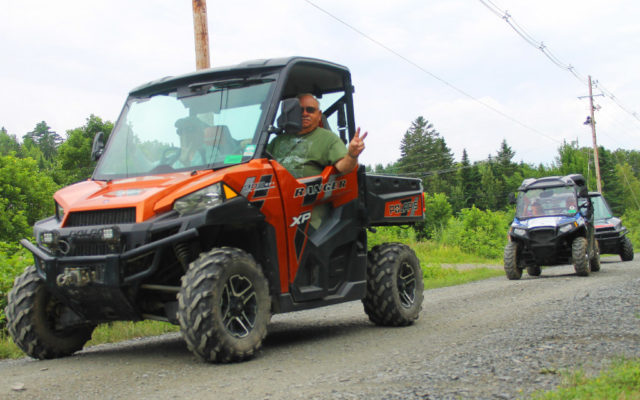
Recreational trails benefit Mainers, communities and our economy
By BDN Editorial Staff
Maine has long been known for its scenic beauty and outdoor recreation. Think of Henry David Thoreau’s travels through the Maine woods or the countless painters drawn to the drama of Maine’s coast and mountains.
The pandemic spurred growth in outdoor pursuits, nationally and in Maine, as people turned to the woods, waters and slopes of the Pine Tree State as a safe respite from the changes and stress brought by COVID-19.
Outdoor recreation contributes $3 billion a year to the state’s economy and supports 41,000 jobs, according to a group calling for a bond to support trail work in Maine.
Trails — for snowmobiling, ATV riding, hiking, cross country skiing, biking and other ventures — are an essential part of that economy.
Maine is home to many noteworthy trails, including the Appalachian Trail, Down East Sunrise Trail, Eastern Trail and extensive Interconnected Trail System for snowmobiles. But, communities and other groups from one end of the state to the other would like to maintain and build more trails, and to make existing ones better accessible to people with a full range of abilities.
In Farmington, for example, a new bridge over the Sandy River, which will help snowmobilers better access the town, is a priority for local groups. Groups in Calais hope to extend the popular Down East Sunrise Trail to their community. Skowhegan has made outdoor recreation infrastructure, including trails, a focal point of their plan for transformation and development.
For the first time, state lawmakers are considering a bond to support this work. Nearly every year, voters approve around $100 million in bonds for work on the state’s roads and other transportation infrastructure. Investing in improving Maine’s trails, for a variety of users, should be a priority as well.
LD 1156 proposes $30 million for new trails, for non-motorized and motorized recreation. The funds, which would require matching money, would be administered by the Maine Bureau of Parks and Lands. The funds would be awarded on a competitive basis, with an emphasis on multiple use trails and projects that emphasize accessibility and sustainability. All trails must be open to the public.
“Over the past few years, we’ve seen a noticeable influx of new residents to our region, and these folks are attracted to our trails and outdoor experiences. A growing number of people can work from anywhere, and they are choosing rural Maine,” Republican Sen. Russell Black of Wilton said in testimony in support of the bill, which he co-sponsored. “This is great news for local shops, construction workers and town budgets.” According to the National Association of Realtors, nearby trails and greenways raise property values by as much as 15 percent.
In addition to making Maine even more attractive to existing and new residents, the bond can help make the state’s beauty and outdoor recreation more accessible as well.
“As a wheelchair user and lifelong resident of Maine, I grew up in a time when accessibility was not at the forefront of most people’s minds. That’s why I’m so enthusiastic about the Maine Trails Bond,” Enock Glidden, an outdoor accessibility specialist who grew up in Patten, said in a press release about support for LD 1156. “This bill will go a long way toward providing accessible opportunities for people like me to be surrounded by nature and reap the benefits of what Maine’s outdoors has to offer.”
The trail bond bill, which has bipartisan sponsorship, is supported by more than 260 groups, from town to outdoor retailers to diverse sporting groups. A 2019 poll found that nearly three-quarters of Mainers supported a bond to build and expand recreational trails in the state.
“Investing in trails seems like something that people throughout the state agree on, especially at a time when logging and other jobs in rural Maine are facing significant challenges,” Black said in his testimony.
With so much agreement and support, lawmakers should pass LD 1156. Two-thirds support is needed to put the bond on the ballot, where Maine people will ultimately decide whether to support these investments in trails and outdoor recreation.